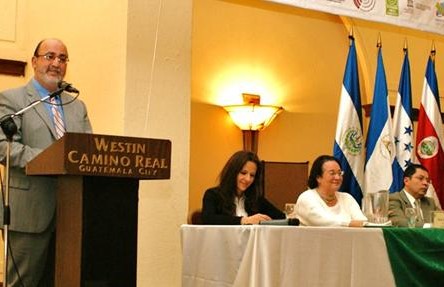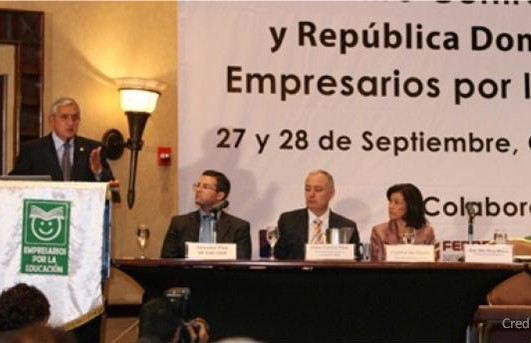PREAL International Conference 2010: Teacher Effectiveness
Summary of PREAL’s recent international conference on teacher effectiveness, held in Guatemala City.
During one notable episode of his comedy show “Moralejas,” Guatemalan presidential candidate Jimmy Morales portrayed a cowboy who becomes president. Ironically, the sketch may have foreshadowed events to come. With less than a week left before the final round of the Guatemalan election set to take place on October 25th, Morales overwhelmingly leads the polls with an estimated 58 percent of popular support. The other candidate, former first lady Sandra Torres, sits at a mere 28 percent. The majority of Morales’ support stems from urban sectors, where he is viewed foremost as an alternative to the ineffective and untrustworthy elite political class. However, Morales is somewhat of a mystery candidate. His rise to the top of the polls was both extremely rapid and largely unexpected. Back in April, Morales held just 1 percent. As a well-known entertainer who had never held public office, his appeal as a total political outsider was limited.
But the political dynamic in Guatemala was about to shift dramatically. In light of the explosive scandals that toppled the administration of President Otto Pérez Molina and revealed the rampant corruption plaguing Guatemalan politics, the young (46) and telegenic Morales, was well-positioned to capitalize on the public’s disenchantment. He is an ideal non-political politician. Since former President Pérez Molina was arrested, Morales’ popularity has only continued to grow. His pitch to Guatemala, captured by his campaign slogan, is elegantly simple: “not corrupt, not a thief.” Riding on the wave of political euphoria that followed in the days after the Pérez Molina resignation, Morales won an upset in the first round of the Guatemalan election with about 24 percent of the vote. The expected frontrunner, Manuel Baldizón, failed to even reach the second round. The sharp decline for in support for Baldizón began in July amidst corruption allegations that implicated running mate, Édgar Barquín, in a money laundering scheme.
It is clear that Guatemalans are thirsty for change, but what actually happens when the TV cowboy becomes president? Morales was a household name in Guatemala long before he announced his candidacy—a key to his popularity—but he’s known mostly as an entertainer. Even with a Morales victory on the horizon, remarkably little is known about his political agenda. He identifies as a centrist, but his platform is essentially devoid of issues. Throughout his campaign, he has continued to stress his commitment to eliminating corruption within the government, and his plans to support the continued operation of the UN-backed International Commission Against Impunity in Guatemala (CICIG) throughout his presidency. His critics wonder if this is empty rhetoric, if charisma and comedic relief is really what the country needs. Most Guatemalans are certainly eager to leave the corruption and impunity of previous administrations behind. However, some fear that Morales’ lack of political experience and clear policy positions alike will hinder his ability to provide the structural and institutional reform that Guatemala needs. Moreover, his party—the National Convergence Front—was founded by retired military officers, some of whom have been accused of serious human rights violations. This has led to further concern and speculation over his ability to follow through on his promises.
In the presidential debate with Torres this week, Morales defended his appeal as “demonstrated capacity”—which would perhaps be more accurately characterized as potential capacity. If Morales does indeed win the election, and it seems likely that he will, his claim will be tested. Guatemala’s transformation over the course of the past six months has been remarkable, and even inspiring. Now, on the eve of a momentous presidential election, the country faces the possibility of greater uncertainty with a novice at the helm. Although the situation is unprecedented, the political capacity of a comedian may very well shape the future of Guatemalan democracy.
Prensa Libre: Entrevisa con Jimmy Morales
Summary of PREAL’s recent international conference on teacher effectiveness, held in Guatemala City.
Links to agenda and media coverage of a conference on the state of the teaching profession in Guatemala.
Business and education leaders discuss business sector engagement in education reform in Latin America.

